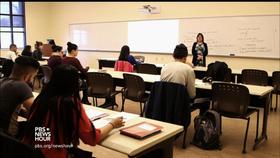Looking for a way to get a college education at little or no cost? So is the current administration. Last year, President Obama created a plan for community colleges that included a $500 million budget to create free online courses that could be tailored to the specific needs of students. According to Inside Higher Ed, the proposal was part of a larger plan to beef up community college services and access, preparing more Americans for practical job opportunities in the current workforce.
Free online community college courses can be a great option for a wide range of people, including:
High school students looking to get a head start on their college education or earn college credits while still in high school.
College students who want to supplement their coursework or fulfill general education requirements.
Working professionals who want to learn new skills or update their knowledge in their field.
Individuals who are interested in exploring new subjects or hobbies.
Adults who did not complete a college degree and are looking to improve their job prospects or pursue a new career.
People who may not have the time or resources to attend traditional college classes.
Individuals who live in areas without easy access to a community college or who have mobility or transportation issues.
Overall, free online community college courses can be a great resource for anyone looking to continue their education and improve their skills and knowledge.
Source: ChatGPT
Plan Specifics
In addition to helping high schools develop a low-cost curriculum, the original proposal of the White House offered federal funding to help community colleges develop courses that students could take absolutely free. The $500 million originally offered would be used to both create a curriculum and ways to assess student performance in the courses. The efforts would be coordinated under a "National Skills College."
Many community colleges supported the efforts, even as they were making a move to put more and more courses online. An online curriculum makes sense to many community college students trying to structure their education around a professional job and family responsibilities. Because many community college students have limited resources to spend on education, free courses make even more sense on this level. Some college officials are hopeful that free online courses would inspire other organizations to set up laptop programs to make computers available to low-income students.
This video offers tips on how to be successful with online courses.
Unfortunately, the Obama plan has yet to transpire. Despite widespread support for the proposal, the $500 million earmarked for free online courses was dropped from the recently approved healthcare and student aid bill, as reported by USA Today.
However, all is not lost on the free classes front. Another institution, which has been providing free online courses for years, is slowly but surely growing in terms of courses offered and its membership base.
The National Repository of Online Courses
One organization hoping for a piece of the pie in Obama's latest proposal was the National Repository of Online Courses (NROC). This institution has been creating free online courses through its e-learning portal, HippoCampus, since long before President Obama drafted his proposal. The organization is slowly growing in the number of courses provided and the number of members it boasts in its base.
How the NROC Operates
This non-profit program is supported by the William and Flora Hewlett Foundation, according to the NROC website. Originally, NROC purchased courses from the University of California's vault of preparatory courses. However, according to NROC's director, Gary Lopez, nearly one-third of all students and institutions using NROC's free resources today are community and technical colleges. With the help of a grant from the Bill and Melinda Gates Foundation, the organization was able to begin designing its own coursework that is better customized to the individual needs of its members.
This video explains how NROC works.
Representatives of leading educational institutions across the country develop the courses. Each online class is carefully assessed for instructional value and presentational impact. The courses are flexible enough to be used in many generalized curriculums and can also be customized to the college's or student's individual needs.
HippoCampus is the online portal for the distribution of NROC's materials. According to the HippoCampus website, this project, like NROC, is a Monterey Institute for Technology and Education project. The website provides a curriculum for college and high school levels, with various course topics.
Eliminates the Need for Textbooks
Karen Kaemmerling, a history instructor for Colorado Community Colleges Online and blog writer for NROC, told USA Today that the NROC's move to more sophisticated teaching tools may put traditional publishers in a bind. She adds that NROC's material is much more useful for students, and in addition to the free price tag, the intuitiveness makes these resources much more attractive than traditional textbooks. Currently, NROC is working hard to develop a developmental math sequence, which would make even more courses available without the need for textbooks.
How Free is Free?
While students can access NROC materials at no charge, the same is not true for institutions. Many have to pay a membership fee to access the portal, ranging from $3,000 to $50,000 per year. The lower end of the fee scale typically applies to individual institutions, while the higher cost mostly applies to state education systems. Institutions sometimes pass this cost along to students by charging a nominal tuition fee for courses obtained through NROC membership.
College used to be considered the "impossible dream" for many low-income students and adults looking for additional work training. However, thanks to President Obama's proposals (which may come to pass sometime in the future) and organizations like NROC, students can get the education they need at a price they can afford.
Questions? Contact us on Facebook. @communitycollegereview





















































































